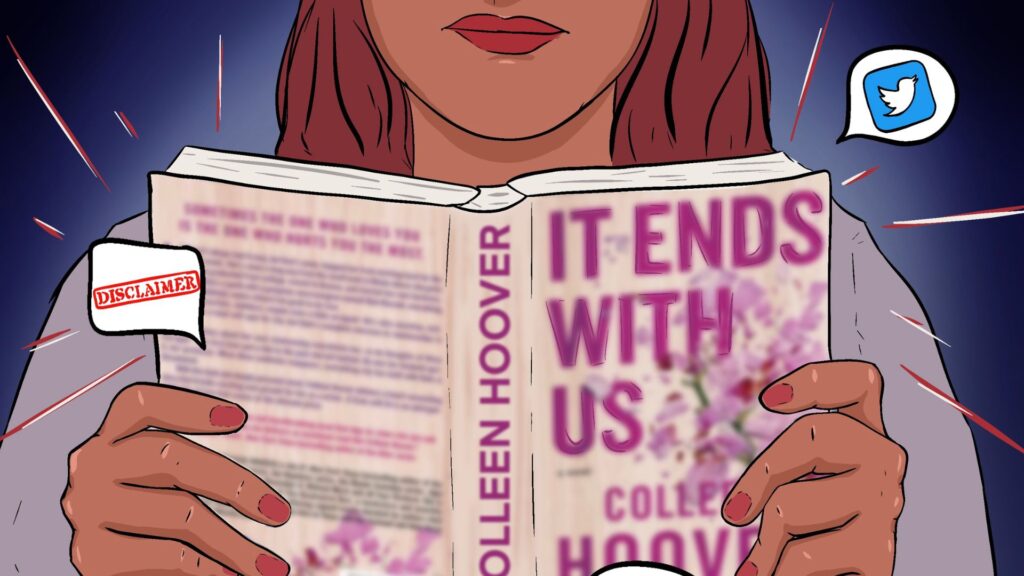Colleen Hoover’s Novels Romanticize Domestic Abuse
If you are a bookworm, the name Colleen Hoover should ring a bell.
Hoover is an American author specializing in young adult romance novels. Last year, she became a New York Times Best Seller after selling more than 20 million books.
While most of her 22 books were published in the 2010s, Hoover became viral in the TikTok book community two years ago
A large part of her rise to fame comes from people fantasizing domestic abuse through her novels.
Hoover’s novels tend to center around the toxicity of abuse by giving graphic depictions of rape, assault, stalking and incest without giving readers any trigger warning. When discussing these sensitive topics, her writing romanticizes the abuse instead of condemning it.
Her most infamous novel from 2016, It Ends With Us, tells the story of Lily, who during the book has a concussion and goes unconscious after being physically abused by Ryle, her love interest.
After the altercation, Lily brushes off the severity of her lover’s actions by saying that all humans make mistakes—all while she continues to co-parent a baby that was conceived unwillingly.
It Ends With Us never mentions Lily seeking legal help. Instead, the abuse is silenced and the novel continues to spout a skewed and romanticized depiction of domestic violence in which toxic behavior is seen as romantic.
But the most problematic aspect of It Ends With Us is not Lily’s silence.
The way the novel justifies Ryle’s actions is by stating that he “loses control” whenever he becomes abusive. This perspective is incredibly toxic and manipulative as it removes responsibility from Ryle’s actions.
It also portrays Ryle as a victim of circumstance, when in reality, he is the aggressor.
But her books are not the only controversy associated with her name.
A year ago, one of her three sons faced sexual abuse allegation by a 16-year-old girl.
Earlier this year, Hoover also canceled a coloring book based on It Ends With Us after her fans arduously condemned her on social media for her lack of tact around the subject of domestic violence.
While Hoover’s novels would do well in the dark romance or horror genre, most of her books are considered and sold as young adult books.
This is utterly obscene.
Framing Hoover’s toxic novels as young adult books makes it easy for impressionable young girls to accept and romanticize relationship abuse.
Abuse is not normal, and the fact Colleen Hoover’s novels can’t agree with this common sense criteria make her deserving of the condemnation she continues to receive.

